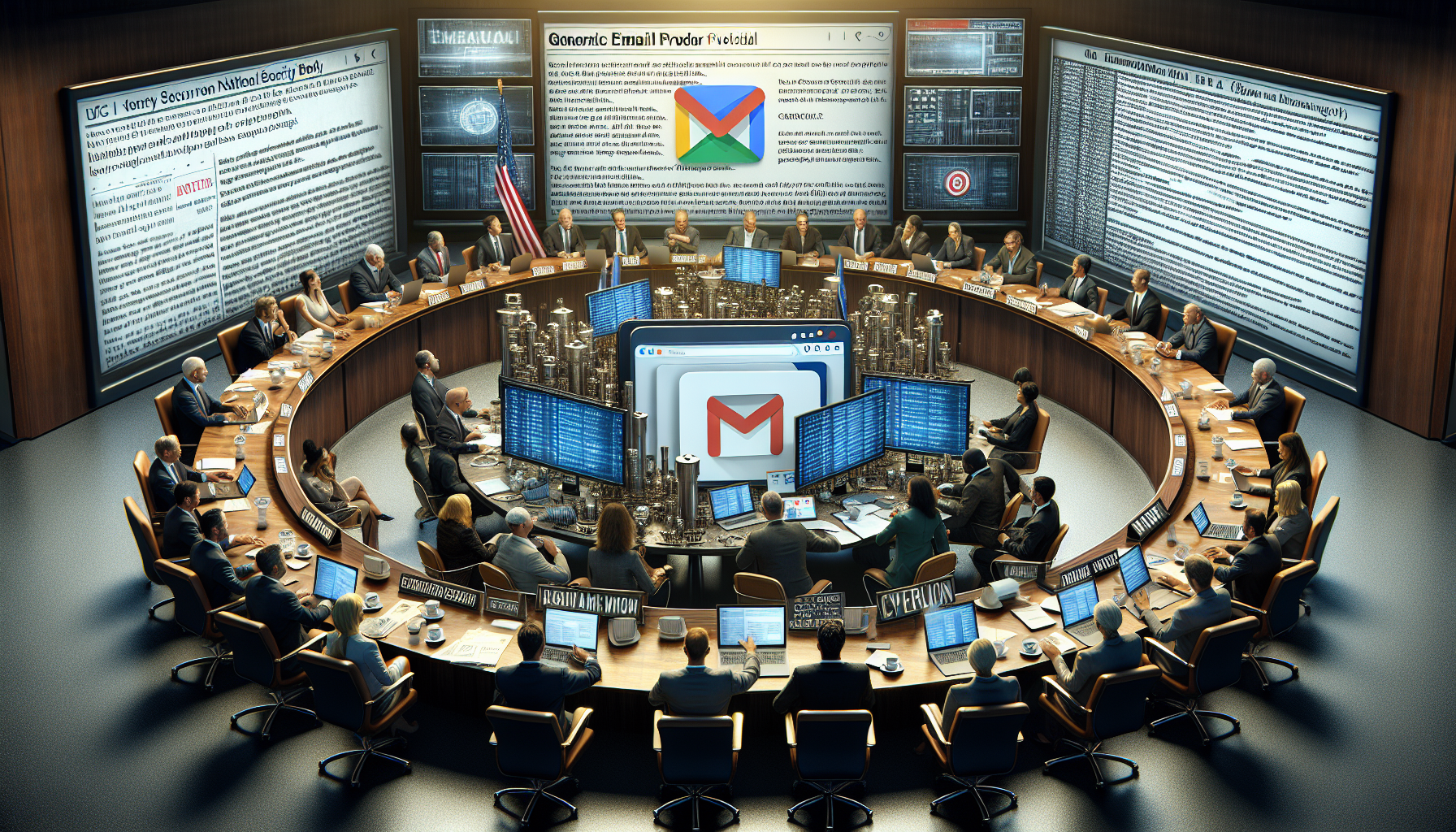
White House Officials Criticized for Utilizing Personal Gmail Accounts for Government Affairs
The Importance of Secure Communication in Government
In an era where cybersecurity risks are prominent, the disclosure that members of the White House’s National Security Council (NSC) have resorted to using personal Gmail accounts for official duties has prompted significant alarm. Recent reports indicate that National Security Advisor Michael Waltz, along with a senior aide, allegedly utilized their personal email accounts to share sensitive information with fellow colleagues.
This behavior raises considerable concerns, not only regarding the potential exposure of classified information but also related to the infringement of federal regulations that require the secure management and preservation of official communications.
The Dangers of Employing Personal Email for Delicate Government Activities
Open Channels Can Lead to Cyber Threats
Email, especially consumer-level services like Gmail, is naturally susceptible to interception. In the absence of advanced encryption protocols such as GPG (GNU Privacy Guard), emails could be accessed numerous times during transmission. As Eva Galperin, Director of Cybersecurity at the Electronic Frontier Foundation, states, “If you’re not using GPG, email lacks end-to-end encryption, allowing message contents to be intercepted and read at various points, including Google’s email servers.”
This implies that any sensitive information—from social security numbers to national security plans—communicated via personal email accounts can be vulnerable to malicious entities. For government officials, the stakes are considerably raised, as such breaches might endanger national security.
Ignoring Federal Archiving Requirements
In addition to cybersecurity concerns, the practice of using personal email accounts for official correspondence may contravene the Federal Records Act. This law mandates that all government communications be preserved and archived for accountability and historical documentation. By utilizing personal accounts, officials risk allowing essential information to “slip through the cracks,” whether unintentionally or deliberately.
Signal Messaging App Also Faces Examination
Encryption Does Not Equal Invulnerability
This occurrence closely follows another controversy regarding high-ranking national security figures using the encrypted messaging app Signal. Reportedly, these officials employed Signal to deliberate on planned military actions in Yemen and even included a journalist from The Atlantic in the group discussion. Although Signal is generally deemed more secure than conventional email, it is not infallible.
The Pentagon has recently cautioned its personnel about the possible vulnerabilities linked to even encrypted communication platforms. This emphasizes a broader challenge: the necessity for robust cybersecurity protocols and training across all levels of government.
Absence of Accountability Sparks Concerns
Currently No Consequences
Despite the serious nature of these actions, there have been no consequences reported for the officials involved. NSC spokesman Brian Hughes has remarked that he has not witnessed evidence of Waltz utilizing a personal account for government communications. Nevertheless, the lack of transparency and accountability in these issues only fuels public skepticism.
The absence of punitive measures or policy alterations in reaction to these incidents indicates a concerning degree of complacency within the executive branch regarding data privacy and national security.
Best Practices for Government Communication
Utilization of Business-Grade and Government-Approved Systems
To minimize risks, government departments usually rely on business-grade email platforms and internal communication systems reinforced with multiple security layers. These systems are engineered to manage sensitive information and comply with federal regulations regarding data preservation and access controls.
Education and Awareness
Cybersecurity is not solely a technological issue—it involves people as well. Regular training and awareness programs can help ensure that government employees recognize the risks linked to using unauthorized communication channels and the importance of adhering to established protocols.
Conclusion
The employment of personal Gmail accounts by White House officials for government tasks starkly illustrates the ongoing difficulties in ensuring cybersecurity and transparency in public office. With rising threats from both foreign and domestic actors, it is crucial that all branches of government strictly follow secure communication practices. The lack of immediate consequences highlights the urgent need for more robust oversight and accountability mechanisms.
Frequently Asked Questions
What makes using a personal email account for government business problematic?
Using personal email accounts circumvents federal archiving requirements and exposes sensitive data to potential cyber threats. These accounts lack the necessary security measures for managing classified or confidential information.
What is GPG and how does it safeguard email communications?
GPG (GNU Privacy Guard) is an encryption tool providing end-to-end encryption for emails. It ensures that only the designated recipient can access the message, safeguarding it from interception during transmission.
Is Signal a secure option for government communication?
While Signal offers end-to-end encryption and is more secure than conventional messaging apps, it is not immune to vulnerabilities. It should be used carefully and in alignment with government cybersecurity guidelines.
What are the repercussions of breaching federal communication protocols?
Breaches can lead to data leaks, diminished public trust, and legal consequences. However, enforcement and accountability have been inconsistent, as highlighted in recent cases.
What communication systems does the federal government utilize for secure communication?
The federal government utilizes business-grade email services and internal communication systems equipped with advanced security features, such as encryption, access regulation, and compliance with archiving mandates.
How can government agencies enhance cybersecurity measures?
Agencies can bolster cybersecurity by adopting secure communication tools, conducting regular training sessions, enforcing strict policies, and ensuring accountability for infractions.
Are there any secure consumer alternatives for private communication?
Yes, applications like Signal and ProtonMail provide enhanced security for private users. However, they may not meet the comprehensive protections necessary for government-level communications.